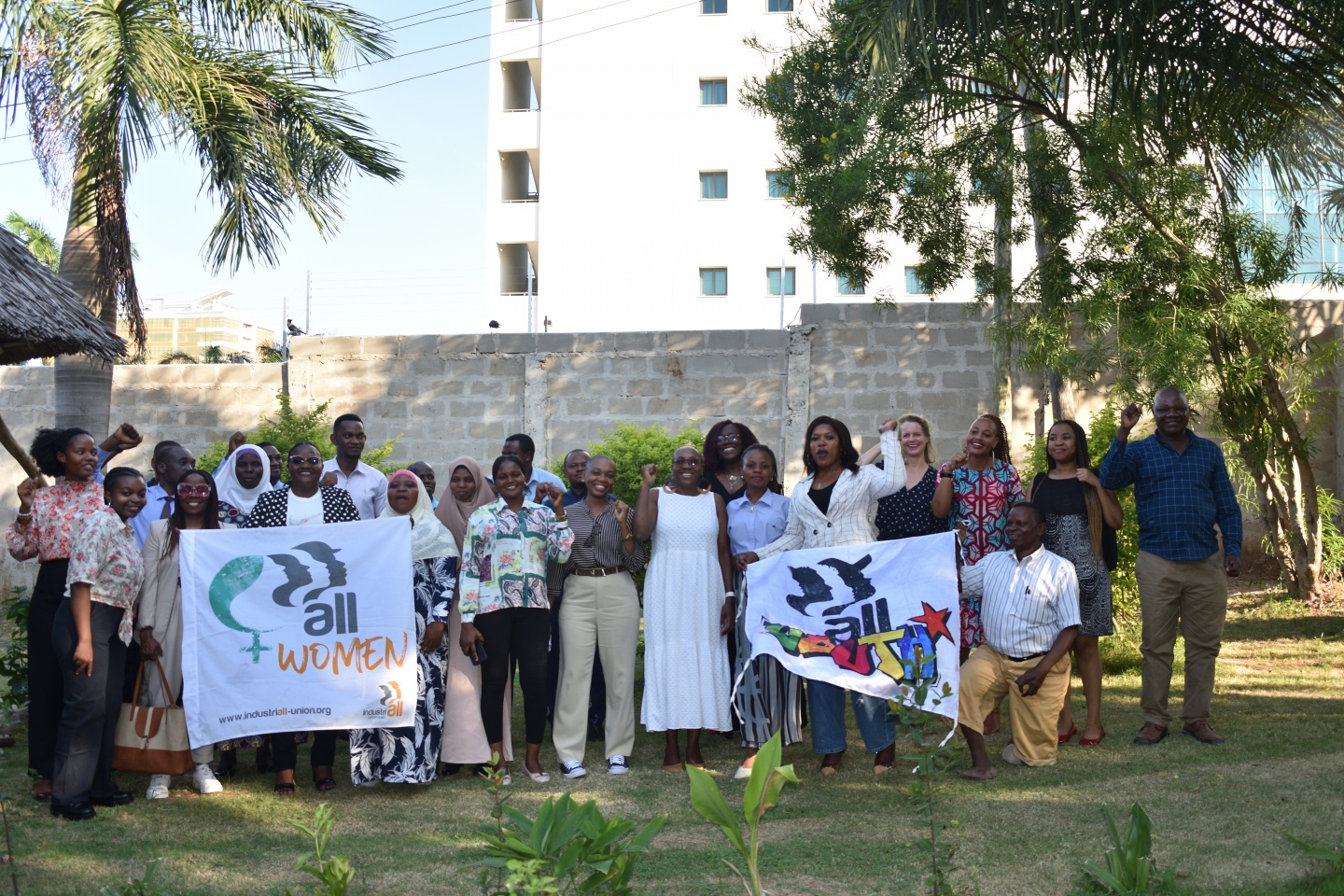11 July, 2024With Tanzania’s national action plan (NAP) on business and human rights at an advanced stage of formulation and expected to be finalized before the end of the year, 30 participants from trade unions, civil society organizations, and informal economy workers met in Dar es Salaam on 9-10 July to strategize on the demands that they want included.
The organizations discussed the demands during the youth and business and human rights workshop which was organized by the IndustriALL's Sub-Saharan Africa regional office in partnership with the Friedrich Ebert Stiftung (FES) Tanzania office.
Tanzania Mines, Energy, Construction and Allied Workers Union (TAMICO) and Tanzania Union of Industrial and Commercial Workers (TUICO), who are affiliated to IndustriALL, the Legal and Human Rights Centre, and Vibindo – an umbrella organization for informal sector associations, and trade union federations, the Trade Union Congress of Tanzania (TUCTA) and the Zanzibar Trade Union Congress engaged with the commission for human rights and good governance (CHRAGG) which is facilitating the NAP processes. They discussed how to make their submissions towards the NAP.
The unions, which organize workers in manufacturing, mining, commercial, and construction activities, want labour clauses to be included in the NAP to protect workers' rights. Other issues that should be promoted are conciliation and mediation, inclusion of women, youth and people with disabilities, and clauses that refer to the International Labour Organization's conventions such as Convention 190 to end violence and harassment in the world of work. Further, the NAP should promote gender equality, accountability of multinational companies including those from China, tax justice, and living wages.
Vibindo said they wanted the state to provide social protection, basic health insurance, accessible infrastructure and better trading areas for informal economy workers.
An online presentation by Maria Garcia Torrente, associate human rights officer, office of the United Nations high commissioner for human rights, highlighted how civil society organizations and trade unions can utilise special procedures.
Paternus Rwechungura, TAMICO general secretary said:
“The NAP process is an opportunity for trade unions to remind the government of its duty to protect workers by enforcing business compliance with labour laws.”
Economic policies also impacted on business and human rights. For example, investment banks and international institutions including the International Monetary Fund (IMF), African Development Bank, and European Development Bank should be part of the conversations on business and human rights in Tanzania because they sometimes contribute to states' disregard for human rights through conditionalities that discourage social spending.
Elizabeth Bollrich, FES director for Tanzania urged unions to “bring their chairs to business and human rights conversations” to amplify workers’ voices and improve accountability.
“NAPs on business and human rights are emerging strategies that can be used to demand fundamental rights at work and decent working conditions. They are a crucial step towards compliance to human rights due diligence laws. It is therefore critical for unions and civil society organizations to be involved in the NAP policy processes,”
said Paule France Ndessomin, IndustriALL regional secretary for Sub-Saharan Africa.
Sub-Saharan countries that have developed the national action plans are Kenya, Nigeria, and Uganda. The national action plans are based on the United Nations guiding principles on business and human rights, and the African Union is developing a continental policy on business and human rights.







